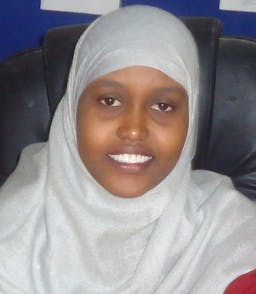Somali Women as change agents
Jan 21, 2015
Story
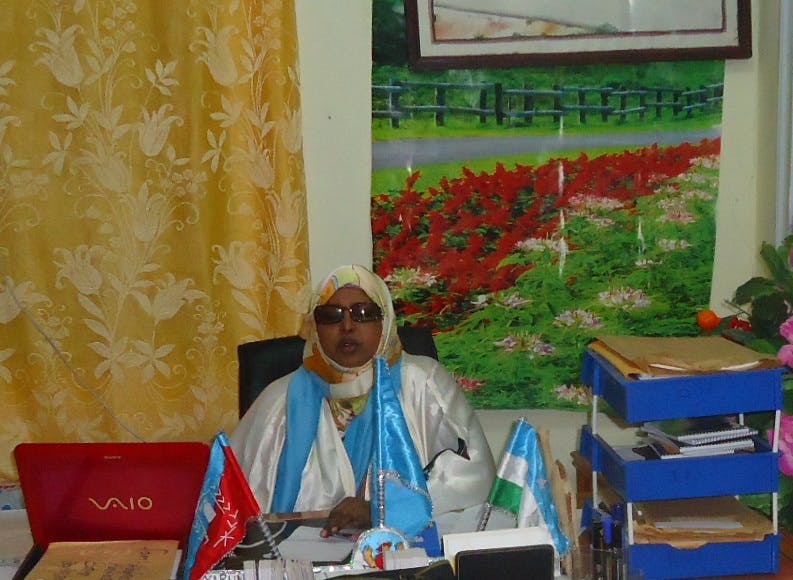
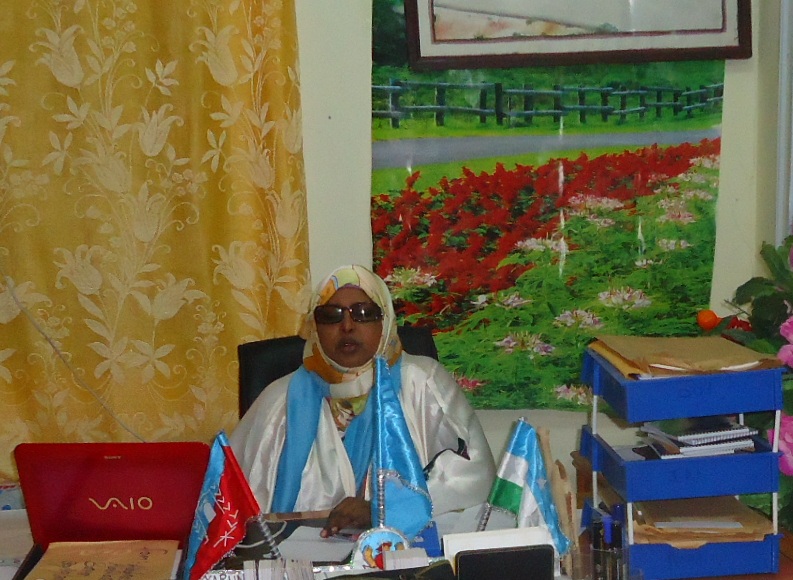
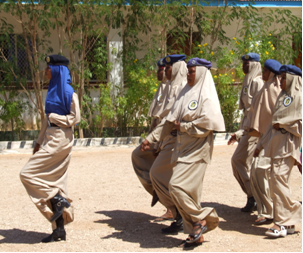
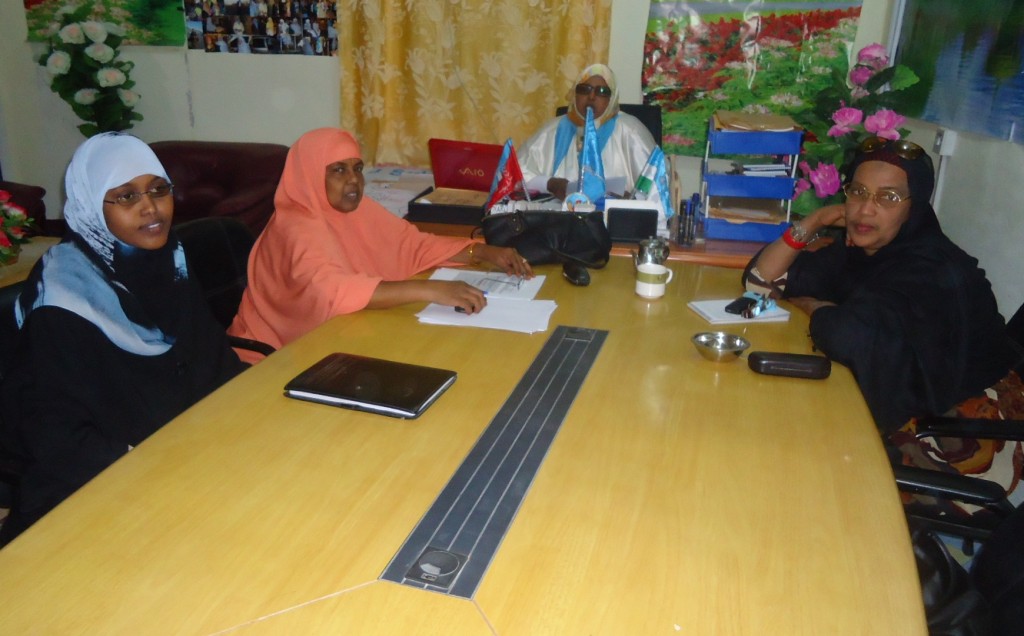
It is commonly said in Somalia that “while women can build peace only men can make it”. One reason for this is that a woman’s affiliations with the clan of her father, mother, husband, children and son-in-law, mean that a woman’s clan loyalty is perceived as unpredictable. Therefore, they are not included as clan delegates in negotiations and decision making forums that can affect the fortunes of the clan.
In Somali society men and specifically elders traditionally have the means to make peace through dialogue and mediation. Although women are typically excluded from decision making forums where peace accords are negotiated, their position within the clan system gives them the ability to bridge clan divisions and to act as a first channel for dialogue between parties in conflict. Few of women’s initiatives for peace have been documented as nobody took them seriously until agreements had been reached. Many women peace activists have found the struggle for peace inextricably linked to that for women’s rights.
When mobilized, women play an important influencing role in local peace processes, especially if they have wealth, are related to clan elders or come from a respected family. In Puntland, in response to one conflict, elderly women from several clans approached the leaders and demanded a cessation of hostilities. Their message was simple: ‘we have had enough displacement in our lifetime and at this age we can’t tolerate it anymore’. This compelled clan elders and leaders to intervene and ensure that the conflict was peacefully resolved.
Somali women are expected to submit to men and to fulfill their duties as daughters, wives and mothers. Some traditional opinions prevail within the community such as “women cannot represent the clan” and “a man should be nominated in a certain position rather than a woman even if she is educated and capable of doing it”. And women are not allowed to speak up in the presence of men. Likewise, men believe that a woman cannot be a superior to a man and she cannot give orders.
Women use the power of poetry to counter attitudes as above. At a conference held in Garowe – the capital of Puntland in the 1998, Anab Hassan, frustrated by what she called ‘male power grabbing and selfishness’, recited a poem that left many men in tears.
Oh men, why don’t you realize the difficult circumstances that
We are now facing?
Or keep the land and we will emigrate.
When the rhythm for rebuilding slows down, we rally and mobilize
For the purpose. We are always beside men, never behind them.
We are at the forefront of peace and reconciliation,
We are ready with what it takes to resurrect good government.
But you men ignore our advice and inspirations,
You suffocate our intellect, so it never sees daylight…
Be warned, we are now awakening after a deep sleep and passivity.
After hearing the poem elders apparently agreed to allocate women seats in the administration at any level they are capable of holding. The situation is improving with time and women have started holding positions in the government.
Puntland, the state where I live and work has enabled women's participation in governance. Located in the northeastern part of the country, it has been relatively stable since 1st August 1998. The state covers a geographical area of about 212510 square kilometers or roughly one-third of Somalia’s total size. As of 2006, the population of Puntland is estimated at 3.9 million of which 52% are nomads. 70% of the population is below the age of thirty. It has 1600 km of coastline which is almost half of the country’s coastline of 3333km.
Puntland state has had three different administrations ever since its creation in August 1998 with three different presidents elected by the parliament.
The main aim Puntland was created in 1998 was to stabilize the northeastern regions. There was a need to get security since the whole country was burning due to the collapse of the central government in 1990. When Puntland was created it was not an issue whether to include women in the government seats or not. As the state’s security was stabilized, the government included issues like improving women’s participation in politics, upgrading health care facilities and education in their agendas.
General Mohamud Musse Hersi (aka Adde Musse), the second Puntland president officially passed a decree in 2008 announcing that “women should hold 30% of government seats” at all levels in Puntland. Although this declaration from the presidential office was meant to potentially engage women in decision making it is not fully implemented yet. This is due to cultural barriers, lack of probable women candidates and also men’s rivalry in positions.
Puntland government has allocated a quota of 20% for women parliamentarians. However, in the current administration which was elected in January 2009 only two out of 66 seats were taken by women candidates as most of the clans nominated men in all their allocated quotas. Furthermore, the Puntland administration has 54 cabinet members where only four are female candidates. There were no women who officially requested to join the cabinet.
Asha Gelle Dirrie was one of the founders of Puntland state of Somalia, and was a member of Puntland parliament for seven years (1998-2005). She was a part of the committee that drafted the Three Years Charter and Constitution of Puntland state of Somalia. In 2005, she was appointed as the Minister of Women Development and Family Affairs. A position she still holds. She is the only female minister in the Puntland administration.
Gelle managed to reduce violence against women including Female Genital Mutilation, domestic violence, rape and many more by raising awareness throughout the state. Gelle also fought for women’s rights and reduced their marginalization by improving women’s education and their participation in social economics and politics.
Though women mostly do not hold high ranking positions within the government, there are women who have been deputies, directors or even coordinators in different ministries since early 2008. This was a result of the return of many Somali women from abroad. Also women’s improvement in terms of education and their capability of leadership enhanced their participation.
Women in the Puntland administration were estimated to be around 10% before 2009. An assessment carried out in 2009 showed that women’s participation in politics has increased from 10% to 27% in government seats. This was due to the encouragement they received from the community and the government.
There are also women who have been trained as police officers and in other sectors of law enforcement since December 2005 when Academia Arma’ for training armed forces was launched in Puntland. Almost 300 women graduated as majors and police officers since December 2005. But most of them do not perform their duties owing to cultural barriers. People feel awkward if they see women dressed in police uniforms or standing along the road acting like traffic women. This is because most people believe that this is men’s work. Although women and the government are trying their best to change this attitude the prevalent culture is an obstacle.
On the other hand, nomination of the city council in all cities in Puntland is led by the clan elders and they always nominate men. Hence, there are no elections. Also, there are women councilors whose clan nominated them or those who came through something called the women’s clan. When clan elders nominated men in the positions allocated for women, it was agreed to nominate women in addition to the men and include them in the council in order to prevent disputes. It was a onetime nomination that later forced each clan to include women in the council within their allocated quotas.
There are some women councilors in Puntland who work magnificently and even better than men. One example is Farhia Hersi (a councilor who grew from district to regional level in Mudug region) who has worked very hard in projecting women’s issues within and outside the council since 2008. People quote her as an example while highlighting women’s achievements. But there are some women who do not participate effectively in discussions or decision making. This is due to the cultural barriers and gender bias existing within the community especially in remote districts.
Between July and September 2009, I was part of a research team sent by Puntland Development Research Center consisting of thirteen members (lead researchers, assistants, audio visual unit and a program coordinator). Our main aim was to set the implementation phase for our pillars of peace program, a program we are working on. It consists of three pillars namely Security and Rule of Law, Decentralization and Democratization. Also we were assessing the social, political and economical situation of districts in remote areas. One of the things that I remember distinctly from this research is a specific focus group discussion that we held in Jariiban, one of the remote districts. There mostly men councilors discussed the existing issues deeply while women councilors remained silent. We asked the women the reason for not participating in the discussion or expressing their valuable ideas and suggestions. A woman in her forties replied in a low shy voice “We agree with whatever men said”.
Somali people were divided in to clans even before the civil war in 1990. People used to live peacefully together. After the civil war in 1990, the trust between the communities was lost. Though people still live together any unusual movement can easily trigger a conflict.
When the Puntland administration was created, it was based on clans since there were no political parties. A certain quota was allocated for each clan (e.g. in parliament, council, cabinet etc). That makes it difficult for women to be appointed in a certain position allocated for a clan due to her multiple clan affiliations. This gives her opportunities to participate in peace building and reconciliation. Further, the persistent traditional belief that “a woman cannot represent the clan” prevents her from full participation.
One of the reasons why Somali women do not participate in politics is the culture which prevented them from partaking in politics and the belief that they were supposed to remain at home.
Lack of knowledge is also another reason for women’s absence in politics. They are not aware of their rights and what positions they can hold.
When women are mobilized and empowered they can work wonders. They can be good leaders because mostly women are more honest than men. Women are more dedicated to whatever they intend to do. Men should accept that women are their other half. Also men should respect women, encourage them and always stand beside them.
In Somalia, civil society organizations led by women have achieved much in the past two decades. They have helped disempower the warlords and reduced the significance of clan affiliation. They have ensured civil society representation which is essential to any peace and reconciliation process. Somali women made progress on their participation in politics. But Somali women still face constraints in breaking through gender based inequalities and cultural and practical barriers to equal political participation.
This article is part of a writing assignment for Voices of Our Future, which is providing rigorous web 2.0 and new media training for 30 emerging women leaders. We are speaking out for social change from some of the most unheard regions of the world.
